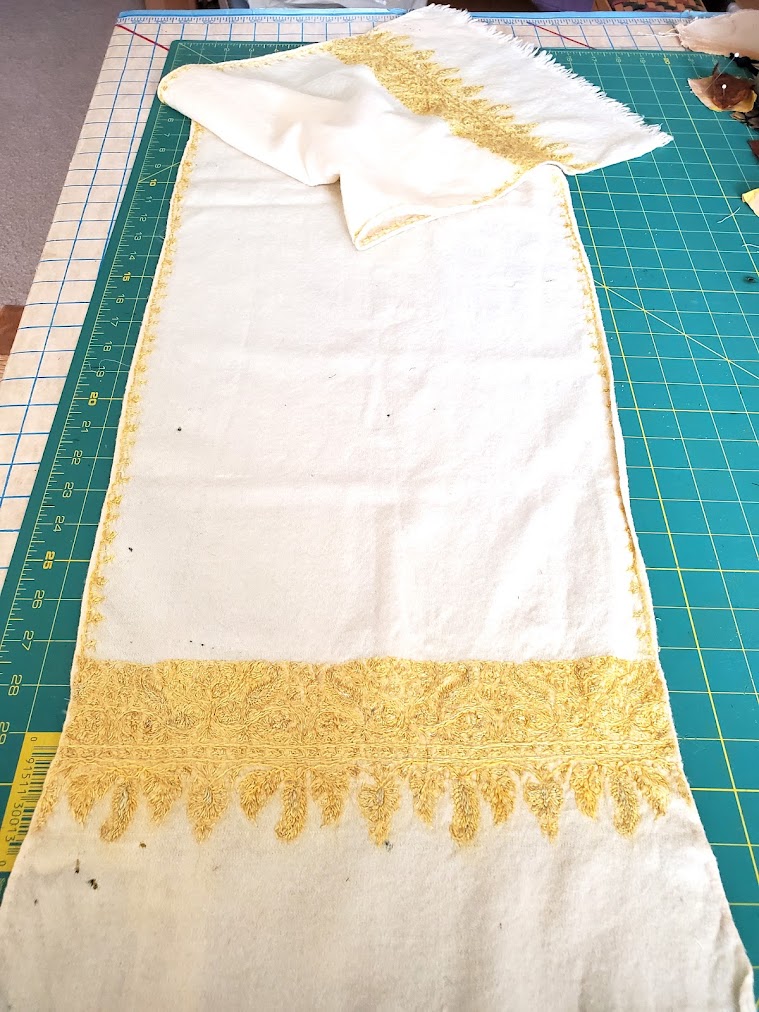By 1942, the world was consumed in war. Juanita was sixteen, and took a job as a live-in nanny for an affluent family in the Oakland hills. She attended high school every day, and after school she babysat the couple's two young children. Her younger brother and sister were sent to live in the house hold of their eldest sister, Angela, in Stockton, California. This arrangement served Juanita well enough. When she graduated high school at age 17, she was hired by the Southern Pacific Railroad Company to work in the ticket office of their Stockton depot. Now Juanita was able to support herself and live independently, while also being near her siblings and young nieces and nephews.
During a visit to the home of her elder sister, Juanita noticed a pair of framed photos on a shelf. One of the photos depicted a stately gentleman dressed in a formal suit with waistcoat and a bow tie. He sat in an ornate parlor chair and held a book in his hand. The other photo was of a fair-skinned woman with fine features. She wore an elegant dress in a fashion popular in the 1920s. A large-brimmed hat adorned with feathers and flowers crowned her head. The woman posed beside a velvet-curtained doorway. An ornately beaded handbag hung from her wrist.
"Who are these people?" Juanita asked.
"They are our grandparents," Angela informed her in a matter-of-fact tone. Juanita was incredulous to hear this. Never had either her father or mother made mention of their parents. She always assumed they were dead.
"They are Mama's parents. They live somewhere in Texas," Angela added.
"Where did you get these pictures?
"Mama gave them to me when I got married. She thought that maybe someday I might write to them. But I never did. Read what's written on the back sides."
Written in a beautiful cursive script on the back of the gentleman's photo was a brief note: "To my dear daughter, her husband, and family, I say this humbly. Remember me." The note was signed, "Martin Negrete, June 21, 1928, El Paso, Texas." The back of the woman's photo was dated November 1927 and was addressed to Mrs. Mercedes N. de Rosales and family. It read: "My dear daughter, receive this humble memory so you know who is fond of you, and don't forget your mother." This note was signed by Joaquina A. de Negrete. Both notes were written in Spanish.
"Why didn't Mama ever tell us about her parents?"
"Because they weren't on speaking terms." Angela proceeded to tell Juanita about their grandmother disowning their mother for marrying their father. "I guess our grandmother eventually forgave Mama and tried to make up with her. Too bad Mama never had the chance to see them again before she died."
How heartbreaking for poor Mama, Juanita thought. To be estranged from her parents for so long; it must have hurt Mama deeply! Juanita would have given anything to be able to see her Mama again. But even though that was impossible now, there was no reason why she couldn't try to contact her grandparents. She made a plan. Within six months, she had saved enough money to purchase a round-trip train ticket from Stockton, California to El Paso, Texas. Juanita fully intended to meet Martin and Joaquina Negrete.
#storythreads #ethnictextilelovestory
The next installment of this story will come soon.
See Joaquina Design Studio on Instagram @joaquinadesigns

No comments:
Post a Comment